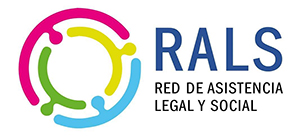Geneva (3 March 2017) – “States must rethink the way they provide “care” to stop discriminatory practices and ensure that people with disabilities get the support they need”, said today the Special Rapporteur on the Rights of Persons with Disabilities, Catalina Devandas Aguilar. “Without adequate support services, people with disabilities will continue to be left behind, excluded from their communities and at a higher risk of violence and abuse,” she added.
Presenting her report to the Human Rights Council in Geneva, the UN expert challenged the disempowering models of caregiving that turn people with disabilities into passive recipients of “care” and offered guidance to States on how to best replace them with human rights-based support services.
Access to quality support is a necessary precondition for living and fully participating in the community, with equal choices to other people. However, in practice people with disabilities have limited or no access to the support they need. “Many have been segregated and disempowered in traditional care services. For them, the very notion of “care” bears a heavy historical connotation associated with oppression and invalidation,” she explained. “People with disabilities must regain control of their lives and decide for themselves who provides support, how and where. Still today, they risk having their decisions overridden by the “caregivers”,” she added.
“This must stop,” Ms. Devandas said. “States must promote support services that allow for the independence, autonomy and direct participation of all and invest resources in this. Moreover, States should refrain from using austerity measures impacting on the provision of support, as well as from investing in services within segregated institutions or in guardianship arrangements,” she emphasized.
The report calls on States to consult with and directly engage people with disabilities, through their representative organizations, in the development and provision of support arrangements.
The report also highlights the contrast between the global shortage of disability-related support services and the rapidly rising demand for them, exacerbated by ageing populations and other socio-political factors, such as conflict and migration.
Ms. Devandas said that in the context of the Sustainable Development Goals, discussions about the “economy of care” must consider the rights of people with disabilities. “Guaranteeing their access to support is not only a human rights obligation, but also a prerequisite to ensure that no one is left behind in the implementation of the 2030 Agenda,” the expert concluded.
ENDS
Ms Catalina Devandas Aguilar (Costa Rica) took office as the first Special Rapporteur on the Rights of Persons with Disabilities on 1 December 2014, following Human Rights Council resolution 26/20 establishing the new special procedures mandate. The creation of this mandate recalls the universality, indivisibility, interdependence and interrelatedness of all human rights and fundamental freedoms and the need for persons with disabilities to be guaranteed the full enjoyment of these rights and freedoms without discrimination. It signals that further attention is needed to address the barriers that persons with disabilities continue to face in all parts of the world in their participation as equal members of society.
Special Procedures, the largest body of independent experts in the UN Human Rights system, is the general name of the Council’s independent fact-finding and monitoring mechanisms that address either specific country situations or thematic issues in all parts of the world. Special Procedures’ experts work on a voluntary basis; they are not UN staff and do not receive a salary for their work. They are independent from any government or organization and serve in their individual capacity.
(*) The full report by Catalina Devandas Aguilar is available here: http://www.ohchr.org/EN/Issues/Disability/SRDisabilities/Pages/Reports.aspx
For more information and media requests, please contact Cristina Michels (+41 22 928 98 66 / cmichels@ohchr.org) or Alina Grigoras (+41 22 91 79289 / agrigoras@ohchr.org) or write to sr.disabilityohchr.org
For media inquiries related to other UN independent experts:
Bryan Wilson, OHCHR Media Unit (+ 41 22 917 9826 / mediaconsultant1@ohchr.org)
Tag and share – Twitter: @UNHumanRights and Facebook: unitednationshumanrights

